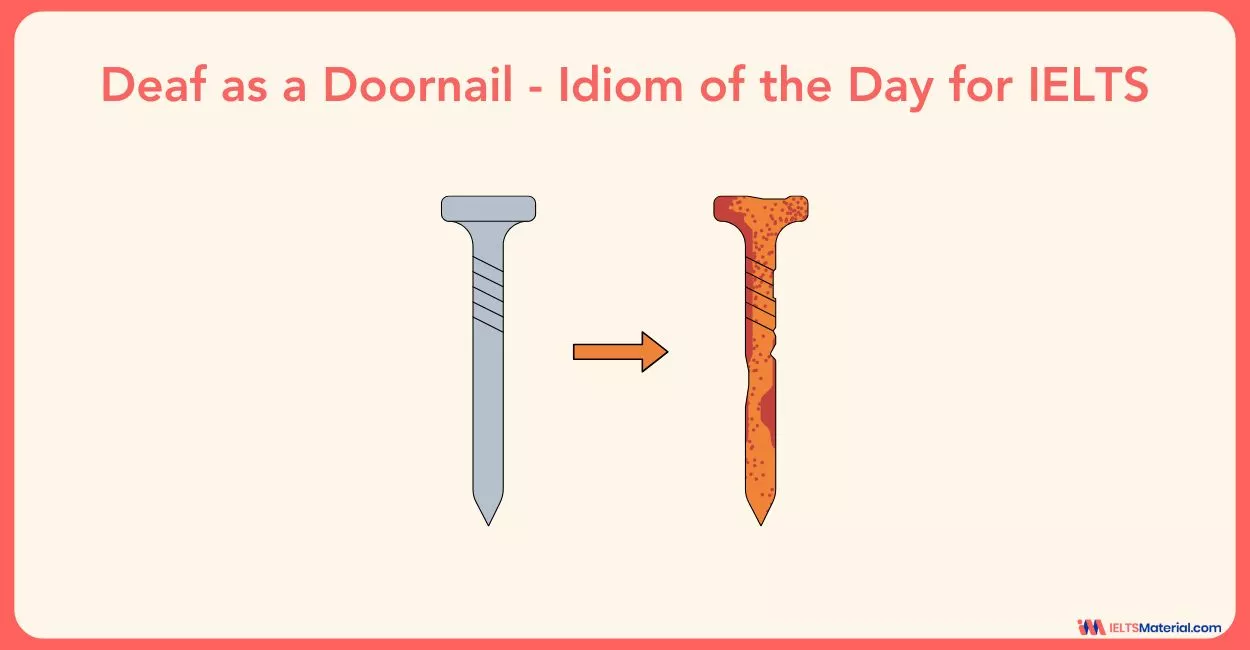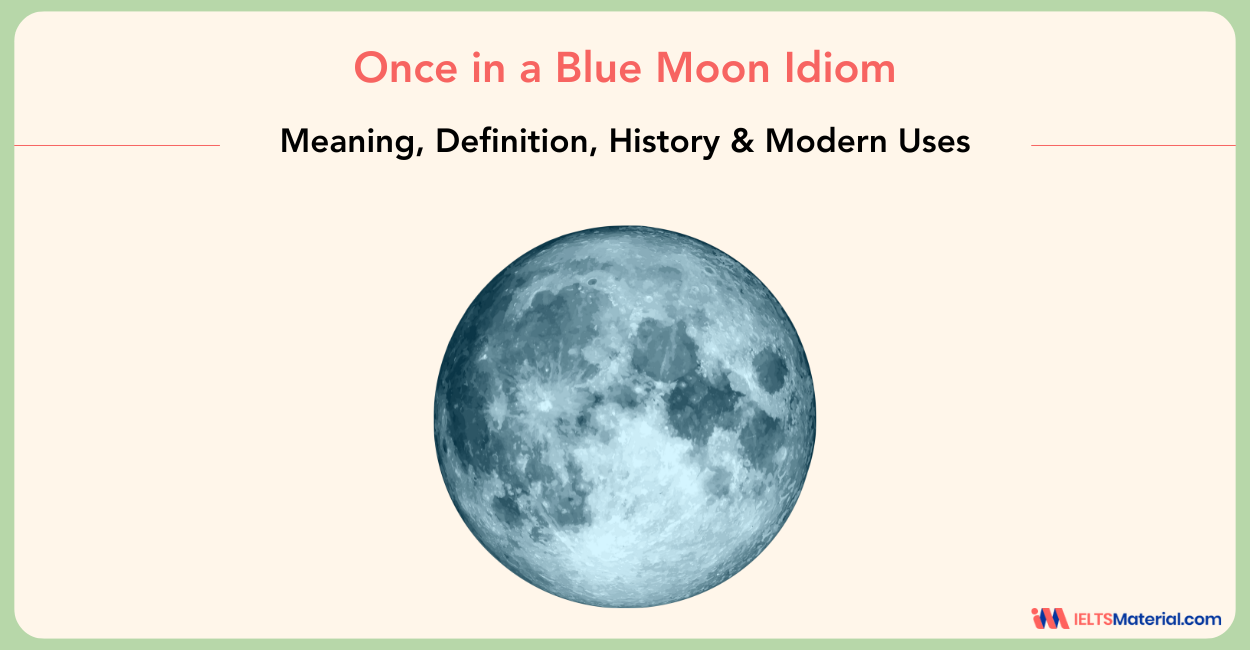Bull in a China Shop Idiom: Meaning, Origin, Usage & Exercises
5 min read
Updated On
-
Copy link
The idiom ‘bull in a china shop’ means ‘a clumsy person causing damage or confusion in delicate situations’. Learn its usage and history in this blog, with examples and IELTS-oriented exercises crafted to boost your vocabulary and IELTS band score.
Table of Contents

Limited-Time Offer : Access a FREE 10-Day IELTS Study Plan!
Imagine a large bull, wild and uncontrolled, entering a fragile china shop filled with porcelain dishes, cups, and delicate glass items. The destruction would be inevitable. This vivid mental image is the foundation of the idiom ‘bull in a china shop’, used to describe someone clumsy, reckless, or insensitive in delicate situations.
In this blog post, we will explore the meaning, origin, and usage of the idiom ‘bull in a china shop’, one of the common idioms in IELTS Speaking, and take up exercises to cement your understanding.
Bull in a China Shop Idiom: Meaning
The idiom ‘bull in a china shop’ refers to a person who behaves awkwardly, carelessly, or destructively in a situation that requires tact, delicacy, or sensitivity.
It does not just mean “clumsy” physically; it can also refer to being socially or emotionally insensitive. It paints the picture of someone out of place, likely to cause damage without meaning to.
Origin of Bull in a China Shop Idiom
The idiom ‘bull in a china shop’ dates back to the early 19th century in England. While actual bulls were rarely brought into shops, the imagery was clear: a strong, uncontrollable animal entering a fragile space could only result in disaster.
- The first recorded use of the phrase appeared in Frederick Marryat’s 1834 novel “Jacob Faithful”: “He trod as if he had been a bull in a china shop.”
- Later, the idiom spread widely across Europe and America, symbolizing clumsy interference or inelegant behavior.
Its enduring popularity comes from the universal recognition of the imbalance between force and fragility.
Bull in a China Shop Idiom Usage
Below are some examples of how the idiom ‘bull in a china shop’ can be used in everyday conversations.
- Whenever Roy is in the kitchen, he breaks something, so his mother says that he’s like a bull in a china shop!
- I never know what to say at a funeral. I feel like a bull in a china shop, trampling on feelings without even meaning to.
- Lester felt like a bull in a china shop; reaching for an orange, he made several elaborate pyramids of fruit tumble down.
- During the negotiation, he acted like a bull in a china shop, offending everyone with blunt remarks.
- She handled the antique vase as though she were a bull in a china shop, and unsurprisingly, it broke.
- Some leaders are admired for being straightforward, but others see them as bulls in china shop who damage international relations.
- “If you send him to handle delicate clients, he’ll be a bull in a china shop — better to let someone tactful do it.”
Book IELTS online classes to learn new vocabulary for the IELTS test!
Bull in a China Shop Idiom: Synonyms and Related Phrases
In the table below, you will find the common idioms list for IELTS Speaking related to the idiom ‘bull in a china shop’.
|
Idiom/Expression |
Meaning |
Example Sentence |
|---|---|---|
|
Like a bull at a gate |
acting recklessly without thinking |
He started the project like a bull at a gate, ignoring proper planning. |
|
Like an elephant in the room |
being awkwardly noticeable or clumsy in sensitive situations |
He raised the salary issue at dinner like an elephant in the room. |
|
Clumsy oaf |
an informal way of saying someone is clumsy or awkward |
Don’t be such a clumsy oaf; you nearly dropped the cake. |
|
Loose cannon |
someone unpredictable who can cause unintentional damage |
The politician was considered a loose cannon, making unplanned remarks. |
|
Blunder about |
to move or act carelessly |
He blundered about the office like a bull in a china shop, upsetting his colleagues. |
Join a FREE online webinar to learn how to boost your IELTS vocabulary for success!
Bull in a China Shop Idiom: Detailed Usage in IELTS Contexts
Mastering the idiom ‘bull in a china shop’ allows you to add humor, precision, and depth to your IELTS Speaking tasks, especially when describing awkwardness, carelessness, or social mishaps. You will find a few examples of how you can use this idiom effectively in IELTS contexts.
IELTS Speaking Part 2
- Cue Card: Describe a time when you made a mistake in a social setting.
- Answer Excerpt: “I remember attending a wedding where I accidentally spilled juice on the bride’s dress. I felt like a bull in a china shop — awkward, clumsy, and out of place. Everyone was polite, but I could see they were uncomfortable. That experience taught me the importance of being more cautious in sensitive settings.”
IELTS Speaking Part 3
- Question: Do you think people should be careful with their words in formal situations?
- Sample Answer: “Yes, definitely. Using the wrong tone can be just like being a bull in a china shop — instead of solving problems, you might make things worse by sounding insensitive.”
Explore our Vocabulary for IELTS to amp up your vocabulary for IELTS!
Bull in a China Shop Idiom: Practice Exercises
In the following exercises, you will learn how to properly use the idiom 'bull in a china shop' and apply it appropriately.
Exercise A: Match the situation with the correct idiom:
1 Someone barges into a meeting and interrupts rudely.
2 A student rushes into an exam without preparation and fails.
3 A politician keeps making unpredictable, damaging remarks.
Idioms to Use:
- Bull in a china shop
- Loose cannon
- Like a bull at a gate
Exercise B: Choose the correct option.
4 Which of the following is the BEST situation to use ‘bull in a china shop’?
A A surgeon performing a delicate operation successfully
B A child breaking three cups while running indoors
C A librarian organizing books neatly
D A pilot landing smoothly
5 Which idiom is closest in meaning to ‘bull in a china shop’?
A On cloud nine
B In hot water
C Break the ice
D Loose cannon
Bull in a China Shop Idiom: Answer Key for Practice Exercises
|
Exercise A |
Exercise B |
|---|---|
|
1. Bull in a china shop 2. Like a bull at a gate 3. Loose cannon |
4. B 5. D |
In conclusion, the idiom ‘bull in a china shop’ remains popular because it describes a universal human flaw: clumsiness or lack of tact in delicate situations. Whether it is physical awkwardness or verbal insensitivity, this phrase captures the contrast between force and fragility. For IELTS candidates, using it effectively demonstrates not just IELTS vocabulary range but also cultural awareness of figurative English. Just remember, in life and in IELTS, you don’t want to be the bull in the china shop!
Useful Links:
- Bosom Friend Idiom: Meaning, Origin, Usage & Exercises
- Accidentally on Purpose - Idiom of the Day for IELTS Speaking
- Hit and Run - Idiom of the Day for IELTS Speaking
- How to Improve Your Vocabulary Score in IELTS Writing and Speaking?
- The most Common Idioms to Boost Your IELTS Score - Topic: Involvement and interest
- The Most Common Idioms to Boost Your IELTS Score – Topic : Safety and risk
Explore IELTS Resources

Start Preparing for IELTS: Get Your 10-Day Study Plan Today!
Check out other Idioms

Haniya Yashfeen

Haniya Yashfeen
Recent Articles

Kasturika Samanta

Prity Mallick

Nehasri Ravishenbagam







Post your Comments